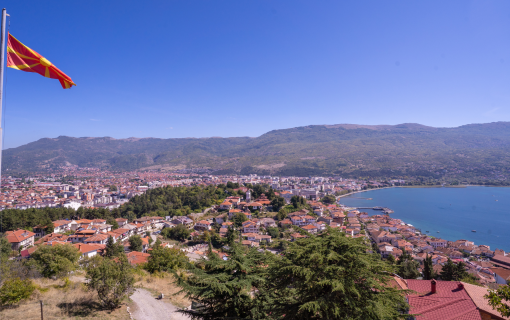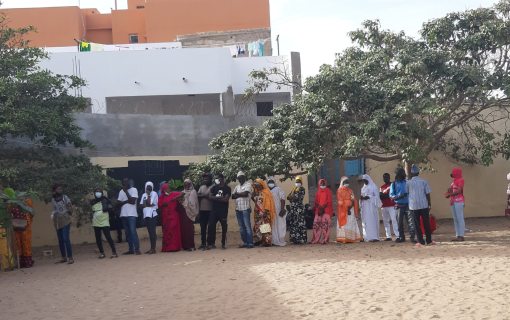Republic of Montenegro Technical Assessment of Election System Performance, Parliamentary and Municipal Elections, May 31, 1998
INTRODUCTION
This analysis of election system performance reflects the cumulative findings of IFES' assessment and technical teams, the first of which visited the Republic of Montenegro in November 1997. It is based on their observations of the system in practice, a review of original source documents and consultations with the full range of participants in campaigns and elections. The analysis also reflects IFES' mandate as a technical assistance provider, which must be understood as being distinct from the observer missions also active in Montenegro for parliamentary and municipal elections. It focuses primarily on areas where IFES' project directly intersected with the electoral process, among them: election official and poll worker training, voter education, candidate information and outreach, vote, registration, and legal reform. As such, the analysis has been designed not so much as a statement on the "freeness" and "fairness" of the election, but as a set of options for strengthening and enhancing Montenegro's electoral system and political process. It is presented as a reference tool for those tasked with pertinent legal, institutional, and procedural reforms.
It should be acknowledged that the 3 I May 1998 parliamentary and municipal elections in the Republic of Montenegro further advanced the democratization and professionalization of the electoral process ill. Montenegro. They constituted a positive step toward the ultimate realization of the "Agreement on Minimum Principles for Development of a Democratic Infrastructure", signed in the Fall of 1997. That no complaints were filed with polling boards by any authorized party representative on election day, and that polling, the vote count, and the convocation of a new Republican Assembly were conducted without incident, are significant achievements given the broader political context. Observers and election officials alike were somewhat surprised to declare that polling had proved uneventful. In light of these achievements, members of the parliamentary working group on electoral reform, election administrators, campaign participants, and the Montenegrin people should be congratulated.
At the same time, the preliminary statement of the OSCE delegation aptly noted that: "fierce competition and a high degree of distrust between the main contesting parties ... resulted in a negative campaign and tense atmosphere. The lack of trust in the integrity of the electoral process expressed by some parties during the course of the campaign was unjustified." It may have also proven destructive to the evolution of public confidence so crucial to stability and democracy in Montenegro. And, despite noteworthy advancements made since the conduct of presidential elections in 1997, questions about voter eligibility and registration, ballot security, abuse of public office for overt campaign purposes, potential misuse of police and security forces for political purposes, the lack of responsiveness of the adjudication of grievances process and insufficiency of enforcement mechanisms, and the independence of responsible municipal authorities and agency bureaucrats - if not election commissions - continued to color the election campaign.
A unique opportunity currently exists to assess recent electoral events and adopt changes aimed at further strengthening the legal framework for campaigns and elections while eliminating on-going institutional and administrative weaknesses of the electoral system. It should be understood that previous reforms proposed by the multi-party working group and adopted by the Republican Assembly, while a significant and positive step were incomplete. A number of factors have limited the scope of legal and regulatory reform, to date:
(1) The politically unstable and highly polarized environment in which recent electoral reforms took place;
(2) Extreme pressure to pass new legislation and conduct new elections as soon as possible;
(3) Failure to engage practitioners among them election administrators in the legislative review debate and drafting process; and
(4) The absence of public notification on proposed changes thus precluding a period of public airing and debate.
More generally, Montenegrin lawmakers need to understand that election systems are evolutionary rather than finite and require refinements to safeguard voters' rights and maintain the efficiency, transparency and integrity of the process over time. To minimize the degree to which politics surrounds electoral reform in Montenegro and as a necessary and important means of building public confidence in the electoral system this process should be initiated well in advance of the calling of new elections practitioners at various levels must be brought into the dialogue and proposed amendments must be subject to public notification and debate. This assessment of election system performance presents a number of technical suggestions and options for reform and is offered by fellow election practitioners in the spirit of co-operation and support.
IFES Montenegro wishes to acknowledge the immeasurable benefit received from the insights of the representatives of the executive, legislative and judicial branches; the full spectrum of political parties; non-governmental organizations; minority groups; media outlets; and election bodies which participated in IFES consultations as well as its information education and training programs. Every effort has been made to incorporate the most practical and feasible proposals voiced by IFES contacts and co-operating partners into this assessment. Special thanks are due to former Deputy Prime Minister and current Counselor to the President for Legal Questions Miodrag Vukovic as well as to Republican Election Commission Chairman Stevan Damjanovic. Recognition is also due to the US Agency for International Development which provided funding for this important and constructive undertaking.









